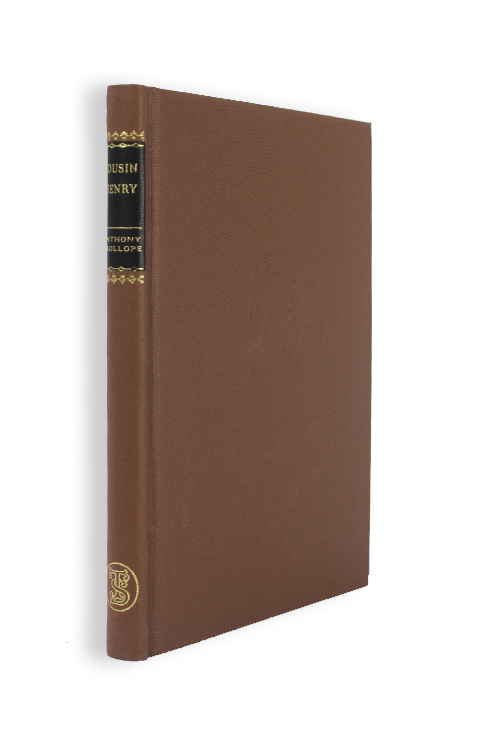Cousin Henry
£25.00
Available to members only
Introduction by Gilbert Phelps
166 pages
First published: London, Chapman and Hall, 1879. 2V.
Originally published simultaneously in The Manchester Weekly Times, Supplement, March 8-May 24, 1879, and in The North British Weekly Mail
Out of stock
Cousin Henry paints a shrewd portrait of a mean but pathetic man, not strong enough either for villainy or generosity; tortured in mind; suspected and insulted by his neighhors; but clinging with the obstinate tenacity of weakness to his unhappy secret.
Sadleir
Of Trollope’s later – mainly shorter – novels, none was more experimental than Cousin Henry, yet its appearance was met with enthusiastic reviews: ‘[It] is not a novel exactly, but rather a study, and a very able one’.
Indefer Jones, a wealthy landowner in Wales, wishes his estate to go to a relative with the same surname: but the one relative he favours to inherit, and who lives with him, is a niece named Isabel Broderick. Ironically detesting the only living relative with the ‘correct’ surname – Henry Jones, a clerk living in London – Indefer vacillates over which one he should bequeath the estate, naming each in a successive series of wills. When he dies, he has finally made up his mind, at the last moment leaving the bulk of the estate to Isabel.
But the will has gone missing, and only Henry – by chance – has discovered its whereabouts; he knows that publication of the document will deprive him of the estate, and the prose becomes intensely introspective as Trollope lays out Henry’s every agonized thought. Vacuous, pathetic and shallow though he is, the cousin cannot bring himself to destroy the will, hidden in a book of sermons in the library, yet will not reveal its existence.
Trollope reverses the hoary old idea of a missing will by cleverly subverting the traditional roles that should be played by the cousins. Henry is unable to do a really evil act, while Isabel is here made rather unlikeable and is refused the safety – traditionally central to the heroine in Victorian melodrama – of the moral high ground. Whilst unquestionably blameless, what Jack Hall calls Isabel’s ‘professional martyrdom’ makes it impossible not to feel pity for Henry, and Trollope confesses: ‘We are too apt to forget when we think of the sins and faults of men how keen may be their conscience in spite of their sins’.
There are touches of sardonic humour: Henry’s horror at cross-examination in court by John Cheekey, reputedly one of Great Britain’s cruellest barristers, nicknamed ‘Supercilious Jack’; or Isabel’s hypocritical decision to hide in her room whilst the hunt for the will continues, rather than admit her keen interest.
Trollope debates in meticulous and tiny detail the effect of a legacy upon ordinary people who inhabit that grey area between impossibly moral rectitude and real life. The modern tone of the book is total, written by a master at ease – yet still experimenting – with his craft.
